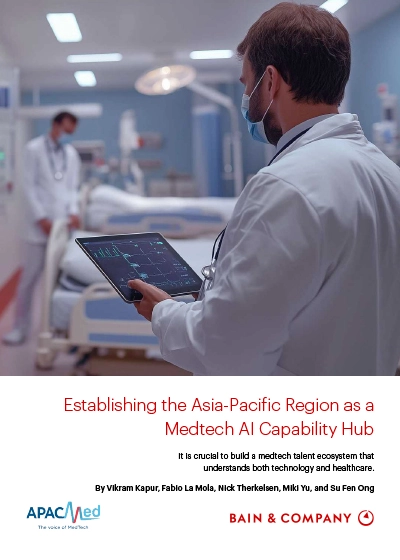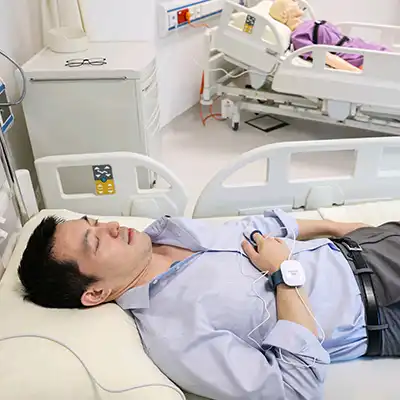Singapore is growing its pool of “bilingual talent” to transform healthcare using AI
Building “bilingual talent” — professionals who can combine both healthcare domain knowledge and deep technical AI skills — is central to helping companies develop and deliver AI-driven healthcare solutions. Current data shows just 10 per cent of MedTech professionals in Asia-Pacific (APAC) possess this vital combination of skills. Clinical teams struggle to communicate requirements to AI specialists while technical teams find it difficult to align solutions with healthcare workflows. The shortage affects companies at every stage - from development through deployment - and makes it harder for companies to scale new AI solutions.
Singapore is actively addressing this global gap through initiatives such as the AI Apprenticeship Programme and facilitating partnerships between local institutes of higher learning with global tech companies. One such example is the IBM SkillsBuild programme with Republic Polytechnic and Singapore Polytechnic, which seeks to help learners develop valuable new skills and access career opportunities. Such initiatives provide hands-on training, facilitate collaborative research projects, and build industry-relevant capabilities that give Singapore-based companies an edge in AI innovation across various sectors, including MedTech.
Singapore’s ecosystem advantage in advancing MedTech AI
To harness the full potential of AI for MedTech innovation in the region, data is key. However, many Asian genetic profiles remain under-represented in current genomic databases, despite Asia accounting for 60% of the global population. This limits the development of new therapies, especially for diseases that are more prevalent among these communities.
Often referred to as a microcosm of Asia, Singapore’s multi-ethnic population – comprising Chinese, Malay and Indian races – represents nearly 80% of the genetic variation found in Asia. To improve representation of Asian populations in global genomic research and support more inclusive precision medicine worldwide, Singapore launched its National Precision Medicine (NPM) initiative — a 10-year national effort to integrate genomic, clinical, lifestyle, and environmental data from up to 10% of its population by 2031.
The aim is to improve health outcomes, enable research, and unlock economic value. Rolled out in phases, the initiative began with building a national reference genome and is now expanding clinical applications and population-level sequencing through programmes like SG100K. SG100K aims to sequence and analyse the whole genomes of 100,000 Singaporeans from diverse ethnic backgrounds to strengthen the country’s biomedical research and clinical innovation capabilities.
Singapore is also enabling access to robust healthcare data, through initiatives like the TRUST platform. This facilitates secure data sharing between private and public institutions, which can help to accelerate innovation while upholding stringent standards of privacy and data governance. Recent examples include risk prediction for congenital hearing loss, cancer risk modelling, respiratory disease research using administrative data, and studies on genetic variants in diverse Asian populations.








